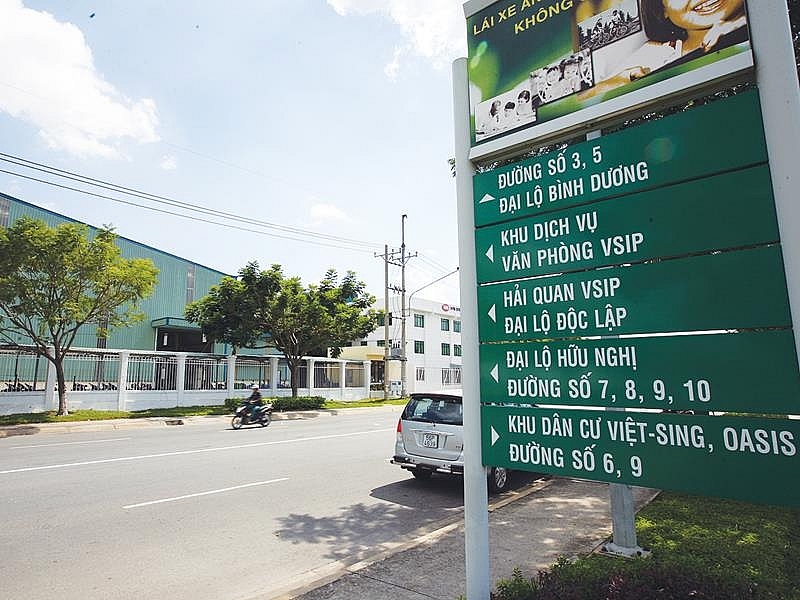
Vietnam, as per the latest HSBC report commissioned by the Singapore Business Federation, is seen as a favoured destination for internationally oriented Singapore-based companies expecting to expand, trailing only Malaysia and Indonesia. Of over 1,000 Singapore-based firms surveyed, 86 per cent of which are considered small- or medium-sized enterprises (SMEs) with annual turnover of up to S$100 million ($73.4 million) and fewer than 200 employees, 76 per cent said they already had operations in Vietnam and 30 per cent expect to further expand in the country in 2018-2020.
Vietnam and the ASEAN as a whole are seen as the prime market targeted by Singaporean companies planning to expand further within the next two years, with 77 per cent of companies saying they have plans to expand their businesses beyond Singapore. Among them, 77 per cent are eyeing the ASEAN for their expansion. Vietnam secured the third spot among regional peers preferred by the city state’s companies thanks to its great potential for customer demand, which is second only to Indonesia’s.
In addition, the overall investment climate, business costs, favourable and transparent foreign investment regulations, as well as ease of relationship building with customers, suppliers, and partners, are additional attractive attributes that make Vietnam an ideal market for Singapore-based businesses to venture into.
Winfield Wong, head of Wholesale Banking at HSBC Vietnam, said, “While Vietnam’s growing consumer base is already well recognised by Singaporean corporations, the report shows that many businesses are looking to double down on our demographic dividend.
“Beyond the consumer segment, Vietnam’s manufacturing–whilst already strong–is now entering the higher-end space. So, while many corporations may base their treasury and other back-office functions in Singapore, a lot of revenue-making operations are being driven out of the country. This is only expected to increase with Vietnam’s strengthening of its position in the supply and value chain,” Wong continued.
Singapore’s investment into Vietnam includes companies founded in the city state as well as many international corporations. Of the 37,400 international companies in Singapore, 7,000 are multinational corporations (MNCs) and 60 per cent have regional responsibilities.
Notwithstanding the very strong interest in ASEAN expansion, surveyed companies expressed concern over some of the obstacles they faced when venturing into the region, including uncertain economic and political conditions in the ASEAN, the lack of knowledge on market opportunities and customer requirements, and difficulty in getting permits and licences, naming them as potential barriers to expanding into the region.
Despite the generally positive sentiment towards the ASEAN Economic Community (AEC), ASEAN regional economic integration, and the perceived benefits of the ASEAN free trade agreements (FTAs), the lack of accessible, clear information about these initiatives is a major obstacle for companies looking to benefit from these agreements.
Most of the Singapore-based SMEs entering or expanding within Vietnam will have or are seeking an in-country relationship. The study found more than 63 per cent of those surveyed had a distributor or joint venture arrangement in Vietnam.
“Singapore-based SMEs can make a significant contribution to Vietnam’s economy. They are looking to expand beyond their domestic market and can benefit from the cross-border activity that was previously seen as the domain of larger corporations,” Wong said.
“However, entering and expanding in any market is never a straightforward process and it is inevitable that there will be bumps along the way, particularly for SMEs who may not have the resources and local insights to fully navigate the differences in political and business cultural norms in neighbouring countries,” he added.
Most Singapore-based SMEs, according to Wong, recognise that the recipe for success in overseas ventures includes selecting the right local partners and advisors. While this presents new opportunities for local businesses, the downside is that it has already become a new standard, meaning the pace at which such business partnerships are formed is speeding up.
“To seize these opportunities, local companies need to take a proactive stance by plugging into the network and actively reaching out to expanding Singapore-based SMEs in advance,” he noted.
VIR